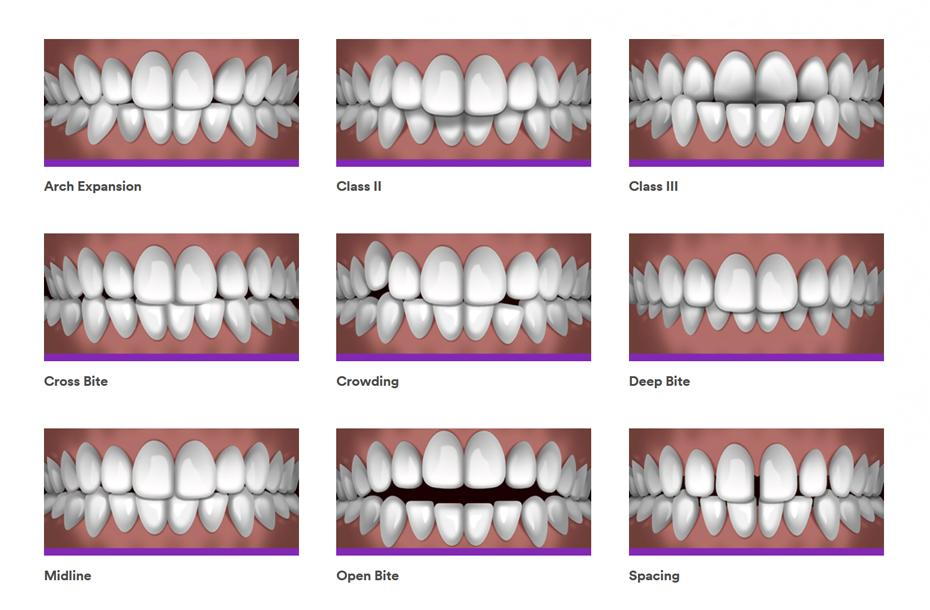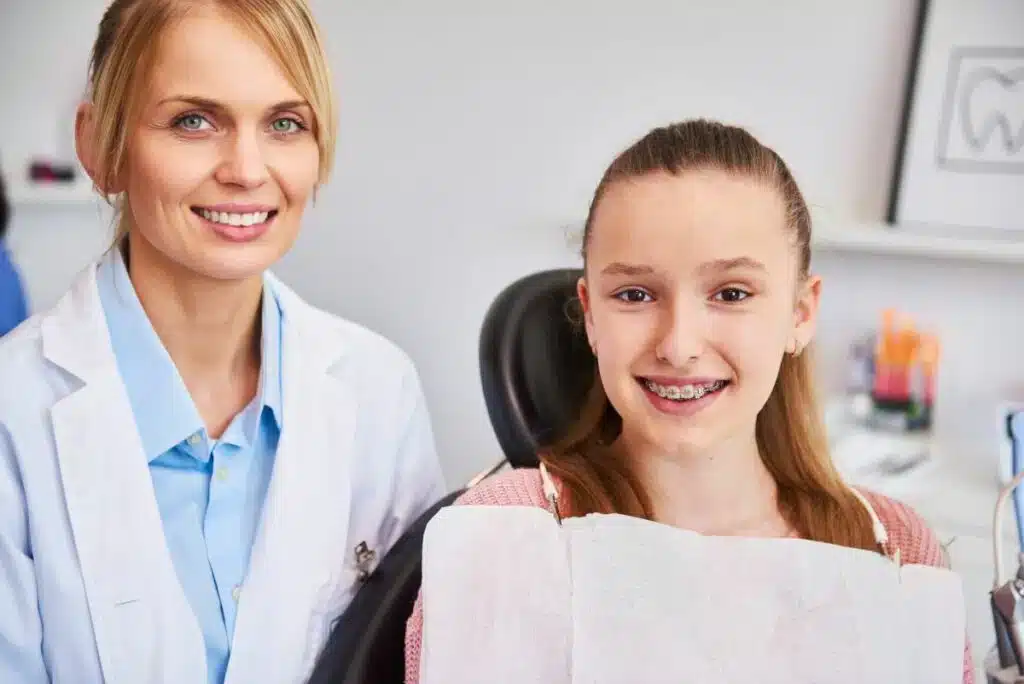Causey Orthodontics Fundamentals Explained
Causey Orthodontics Fundamentals Explained
Blog Article
What Does Causey Orthodontics Do?
Table of ContentsGetting The Causey Orthodontics To WorkThe Greatest Guide To Causey OrthodonticsThe Best Guide To Causey OrthodonticsThe Best Strategy To Use For Causey OrthodonticsExcitement About Causey OrthodonticsExcitement About Causey OrthodonticsWhat Does Causey Orthodontics Mean?
What is the difference between a dental professional and an orthodontist? All dental practitioners, including orthodontists, treat the teeth, gum tissues, jaw and nerves.
Orthodontists and dental experts both provide dental treatment for patients. Orthodontists can work in a dental office and use the very same treatments as other dental experts. So you can think about both physicians that treat periodontal and teeth issues. The major difference is that becoming an orthodontist calls for a particular specialty in dealing with the imbalance of the teeth and jaw.
An Unbiased View of Causey Orthodontics
An orthodontist is a dental expert that has actually gone through training to specialize in the diagnosis, avoidance and treatment of irregularities in the jaw and teeth. They can additionally determine potential troubles in teeth alignment that might develop when problems are left unattended (orthodontist services).
This consists of all the needed education and learning to come to be a general dentist. According to the American Trainee Dental Association (ASDA), it indicates you will certainly need to have either a Medical professional of Medicine in Dental Care (DMD) or a Physician of Oral Surgery (DDS). Simply put, orthodontists need to finish oral college and afterwards get an orthodontics specialty education and learning.
Some orthodontists likewise get their masters in craniofacial biology. These programs concentrate on 2 specific locations or self-controls: Dentofacial Orthopedics: This research concentrates on assisting teeth and jaw advancement.
The smart Trick of Causey Orthodontics That Nobody is Talking About

 These consist of apparatus such as braces, retainers and Invisalign. What does an orthodontist do, and what do they concentrate on? The general goal of an orthodontist is to enhance an individual's bite. Not every person is birthed with straight teeth, and an orthodontist will ensure that patients obtain equally spaced straight teeth.
These consist of apparatus such as braces, retainers and Invisalign. What does an orthodontist do, and what do they concentrate on? The general goal of an orthodontist is to enhance an individual's bite. Not every person is birthed with straight teeth, and an orthodontist will ensure that patients obtain equally spaced straight teeth.
Not known Details About Causey Orthodontics
The American Organization of Orthodontists recommends your first check up by age 7. You'll need to see your orthodontist if you have a misalignment in your teeth, additionally called malocclusion. If you notice irregular bite patterns, a somewhat misshapen jaw, or when your teeth are overcrowded, you will likely need orthodontic treatment.
At Advanced Orthodontics, we supply clients with a all natural treatment experience. On top of that, we offer flexible therapy schedules, versatile repayment options and a fun, delightful experience. Call ( 480) 357-4900 today for additional information and routine a consultation.
An orthodontist is a dental expert educated to detect, stop, and deal with teeth and jaw irregularities. Orthodontists work with individuals of all ages, from youngsters to grownups (https://500px.com/p/causeyortho7).
The Best Guide To Causey Orthodontics
Malocclusion, or misaligned teeth, can bring about dental issues, consisting of tooth degeneration, gum illness, and difficult or excruciating chewing. But not everyone is born with straight teeth. If you have a bad bite or large spaces between your teeth, you may want to seek advice from a dental professional specializing in orthodontic care.
(Photo Credit Scores: DigitalVision/Getty Images) Orthodontists utilize repaired and removable dental devices, like braces, retainers, and bands, to transform the position of teeth in your mouth. Orthodontic therapy is for oral abnormalities, including: Uneven teethBite problems, like an overbite or an underbiteCrowded teeth or teeth that are as well far apartJaw misalignmentThe goal of orthodontic therapy is to boost your bite.
All About Causey Orthodontics

, however not all dentists are orthodontists. They focus on 2 locations: Exactly how to correctly and securely move teeth How to effectively assist advancement in the teeth, jaw, and faceOnce an orthodontist has completed training, they have the option to come to be board licensed.
Imbalance, or malocclusion, is one of the most usual reason people see an orthodontist. It is hereditary and is the result of size distinctions in between the top and lower jaw or between the jaw and teeth. best orthodontist near me. Malocclusion brings about tooth congestion, a twisted jaw, or uneven bite patterns. Malocclusion is normally treated with: Your orthodontist connects steel, ceramic, or plastic square bonds to your teeth.
The Buzz on Causey Orthodontics
If you have just small malocclusion, you may have the ability to use clear braces, called aligners, rather of standard dental braces. Some individuals require a headgear to aid relocate teeth into line with stress from outside the mouth. After braces or aligners, you'll need to use a retainer. A retainer is a custom-made tool that keeps your teeth in place.
Report this page